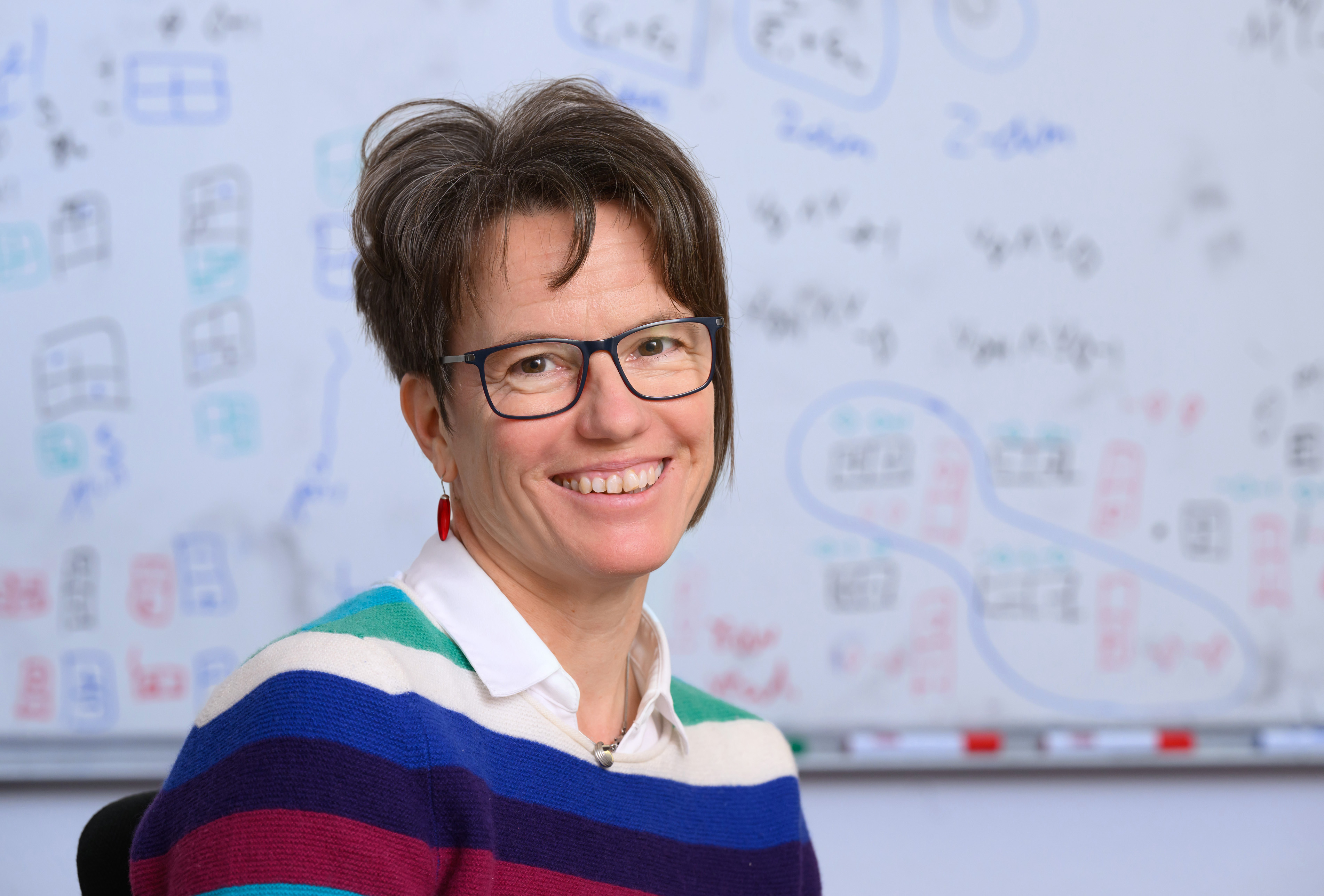Prof. Dr. Catharina Stroppel - Gottfried Wilhelm Leibniz Prizewinner 2023
Pure Mathematics, University of Bonn
Catharina Stroppel receives the Leibniz Prize in recognition of her excellent work in representation theory, especially on the topic of category theory. Representation theory is the mathematical field that deals with symmetries and their various realisations. Symmetries are of key importance in nature as well as in mathematics, for example in physics in relation to the structure of crystals. Stroppel works in representation theory with multiple links to knot theory and also areas such as low-dimensional topology. In particular, she has proven profound Bernstein-Frenkel-Khovanov conjectures, providing a representation-theoretical description and a categorisation of Khovanov homology. She has also created graduated variants of many structures from representation theory, often closely linked to the question of categorisation. With the help of the categorised structures, Stroppel was the first to describe precisely, with Brundan among others, the representation theory of the Lie superalgebra gl (m | n), which is an example of a graduated variant.
Catharina Stroppel studied mathematics and theology at the University of Freiburg and obtained her doctorate in mathematics there. As a postdoc she conducted research in Leicester, Aarhus and Glasgow. She has been Professor of Mathematics at the University of Bonn since 2008, Deputy Director of the Bonn International Graduate School since 2014 and a member of the University Senate since 2019. Visiting professorships have taken her to Chicago and Princeton, among other places. Stroppel is involved in the Bonn Cluster of Excellence in Mathematics and received one of the rare invitations to give a plenary lecture at the International Congress of Mathematicians in 2022.
